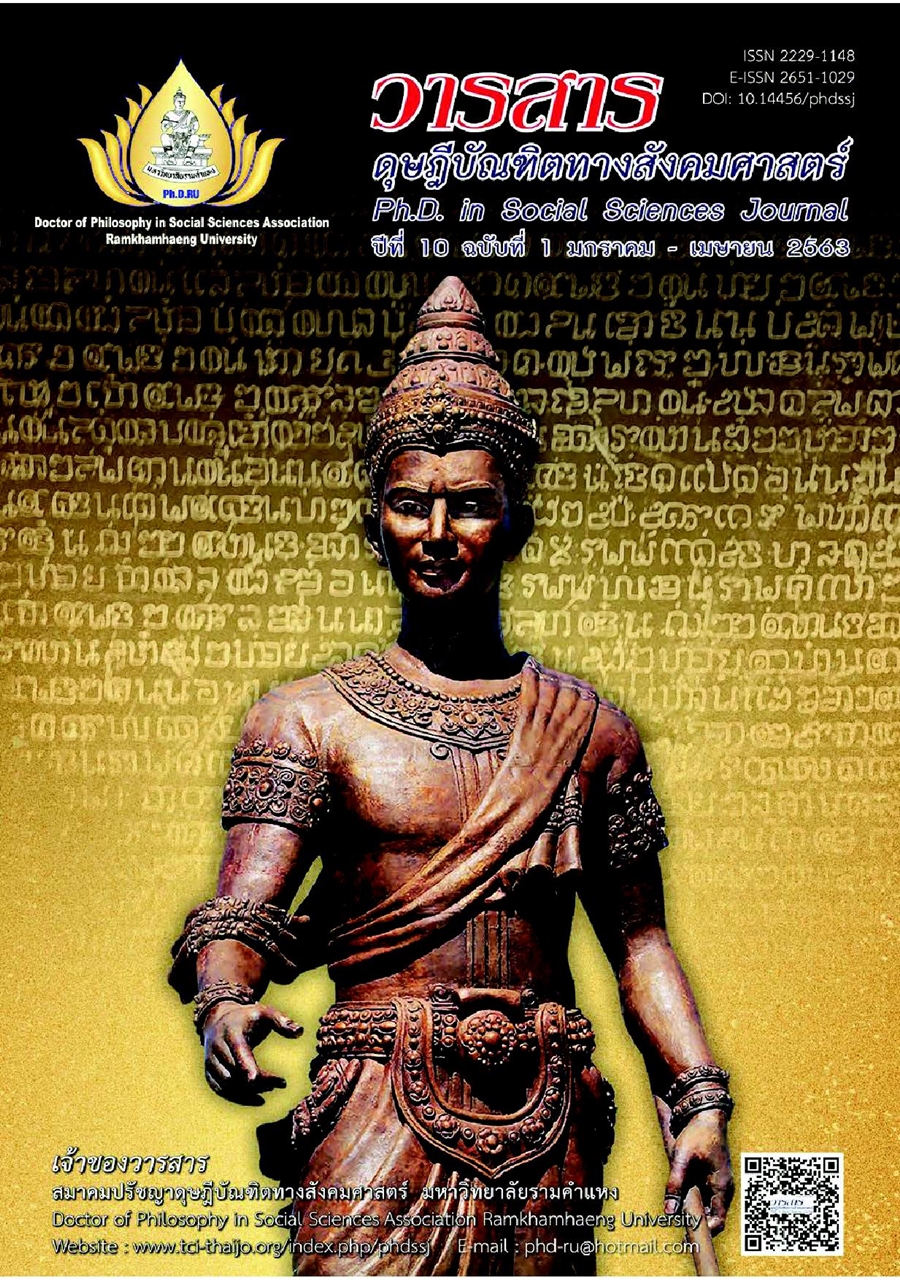The Structural Equation Model of Factors Effecting Customer Behavior of Spa Service in Bangkok Metropolis
Main Article Content
Abstract
The objectives of this research were to study the attitude, subjective norms, perceived behavioral control, intention to use spa service, satisfaction, accountability and behavior on spa usage of customers. The research was based on quantitative method. Sample was randomly drawn from the spa customers.
Research results revealed that among the customers, there were more female than male, most of the customers were 25-34 years old, married, monthly income of 20,000-40,000baht, mostly employed in private sector and well educated, with mostly bachelor’s degree. They agreed that spa is useful for health, and it is an integration of folk wisdom and herbal treatment in form of massage, aroma and relaxing music. An analysis of the structural equation modeling found that the subjective norms, perceived behavioral control and customer satisfaction had direct influence on the intention to use spa treatment. Trust influenced on attitude toward spa use and customer satisfaction, but customer satisfaction, intention to use and perceived behavioral control did not significantly influence on actual spa use.
Article Details
Academic articles, research articles, and book reviews in the Ph.D. in Social Sciences Journal are author’s opinions, and not the publisher’s, and is not the responsibility of the Ph.D. in Social Sciences Journal Philosophy Association, Ramkhamhaeng University. (In the case that research is done on human, the researcher has to be trained in Ethics for Doing Research on Human Training and has to produce the evidence of the training).
References
Ajzen, I., & Fishbein, M. (1980). Understanding attitudes and predicting social behavior. Prentice Hall.
Ajzen, I. (2002). Perceived behavioral control self-efficacy, locus of control and the theory of planned behavior. Journal of Applied Social Psychology, 32, 1-20.
Department of Industrial Promotion. (2011). Spa business in hotels and resorts. Author [In Thai]
Department of Trade Negotiations Business. (2011). Service: SPA and Thai massage. Retrieved from https://mdh.hss.moph.go.th/uploadFiles/document/D00000001019_25101.pdf [In Thai]
Kim, S., & Pysarchik, D. T. (2000). Predicting purchase intentions for uni-national and bi-national products. International Journal of Retail & Distribution Management, 28(6), 280-291. [In Thai]
Lorpraditpong, N. (2006). Customer satisfaction survey handbook (2nd ed.). Thong Printing Group Meeting. [In Thai]
McKnight, D. H., & Chervany, N. L. (1996). The meanings of trust, University of Minnesota MIS Research Center Working Paper series, WP 96–04, Retrieved from https://misrc.umn.edu/wpaper/WorkingPapers/9604.pdf
Ministry of Tourism of Thailand, Department of Industrial Promotion. (2011). Spa business in hotels and resorts. Author. [In Thai]
Morwitz, V. G., & Fitzsimons, G. J. (2004). The mere-measurement effect: Why does measuring intentions change actual behavior?. Journal of Consumer Psychology, 14(1&2), 64-73.
Sritham, C. (2009). The demand characteristics of consumers’ behavior in using spa services. Master' thesis of economics, Chiang Mai University. [In Thai]
Witokco, P. (1989). Teaching documents for teenage behavioral sets sychology and adolescent behavior. Sukhothai Thammathirat Open University. [In Thai]
Yzer, M. (2012). Perceived behavioral control in reasoned action theory: A dual-aspect interpretation. The Annals of the American Academy of Political and Social Science, 640(1), 101-117.


